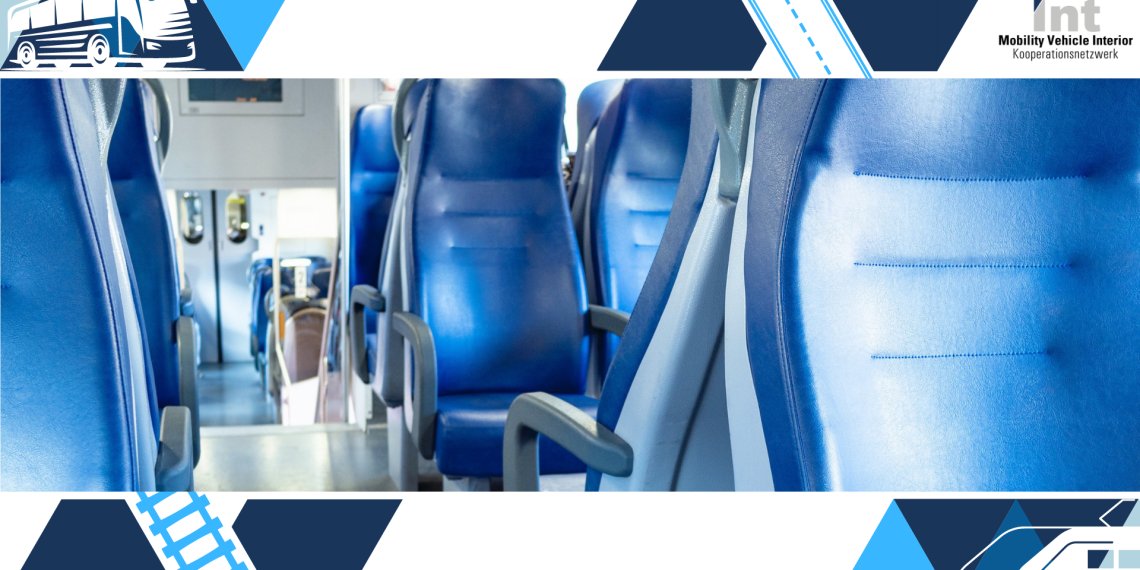Local public transport with buses and trains in Germany is an indispensable part of our mobility and everyday culture. Especially in metropolitan areas, but also in many medium-sized and small towns with successful urban bus systems, it is an important economic and location factor. Last but not least, resource-efficient local public transport, together with pedestrian and bicycle traffic, is one of the main pillars, if not the main pillar, of the necessary and already initiated traffic turnaround with a view to sustainable mobility and climate protection goals. The attractive, functional and above all climate-friendly design of vehicle interiors also plays a role that should not be underestimated.
Against this background, the company is currently establishing an innovation network together with experts from industry and science, in particular Europe’s largest natural history museum (Senckenberg Gesellschaft für Naturforschung) and knowledgeable materials researchers from universities, as well as renowned companies with experience in the public transport sector, in order to identify and develop new technologies and applications in the field of mobile interiors of the future for local public transport. For example, Heymann GmbH, a specialist in form, color and function, and the internationally active and award-winning design studio Neomind have been recruited as founding members.
Accordingly, the aim of the cooperation network is to develop innovations from manufacturing technology, such as lightweight construction, bionics and 3D printing, for the interior in the technology areas of all furnishing elements, such as seats, shelves or surfaces, as well as functional surfaces, lighting, design or digitalization, and to put them to commercial use.
In addition, a particular focus of the network is on the use of biodegradable plastics. With a view to the climate-friendly transformation of our society, the use of climate-damaging materials plays a key role not only in the construction sector and buildings, energy efficiency in manufacturing and the avoidance of waste in the sense of the circular economy are also highly relevant in the transport sector. Bacteria, for example, can be used to produce biodegradable plastic. The cooperation network already has specific research results and possible applications for such a process that can be implemented in practice.

















